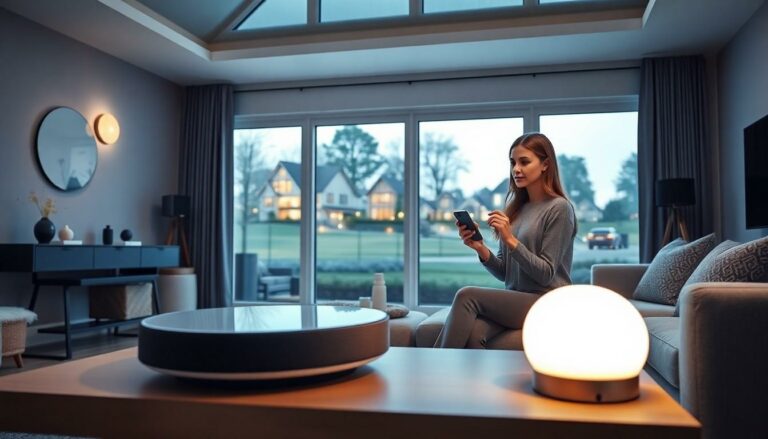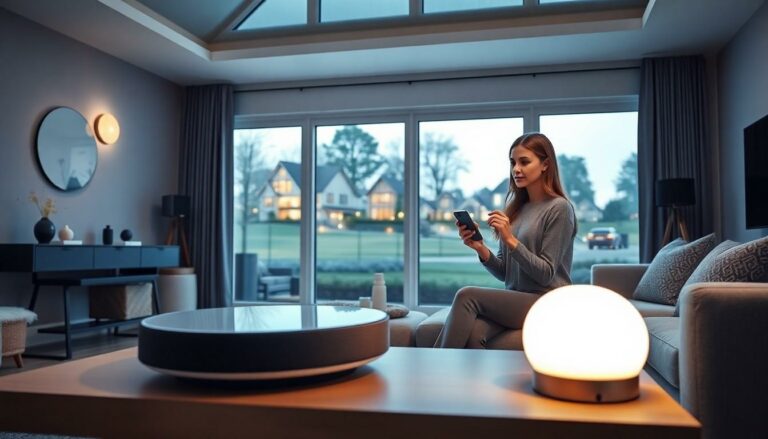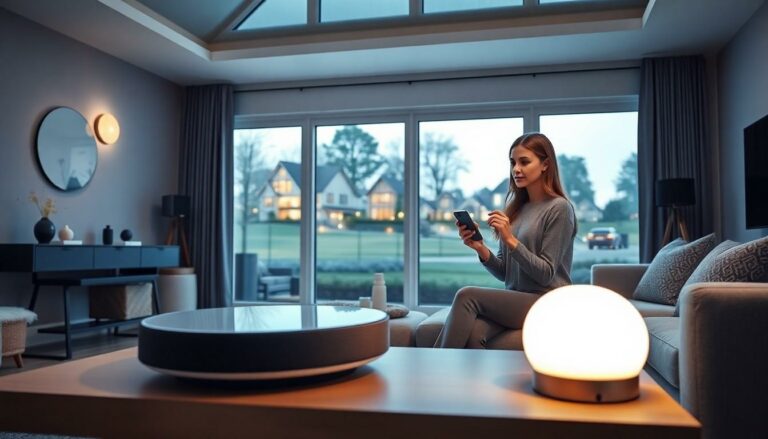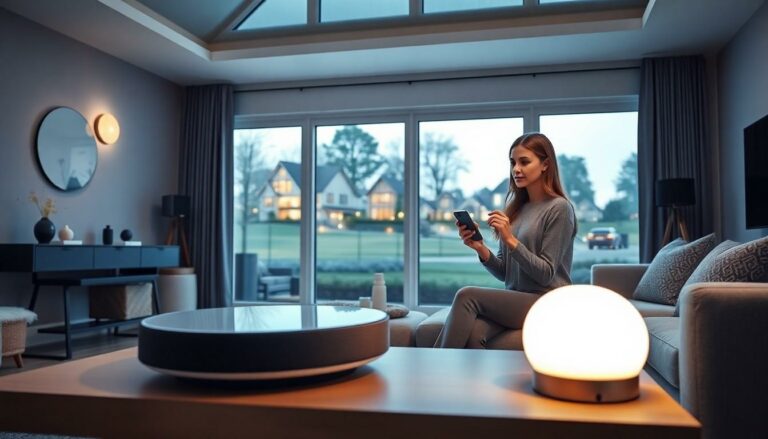Table of Contents
ToggleImagine a world where your coffee brews itself while your thermostat knows just how warm you like it. Welcome to the age of smart homes, where technology and convenience collide like two friendly robots in a dance-off. But before you dive headfirst into this digital wonderland, it’s crucial to weigh the pros and cons.
On one hand, smart homes can save time, energy, and even a few brain cells. On the other, they come with security concerns and a price tag that might make your wallet cry. So, is the smart home revolution worth it, or is it just a high-tech trap? Let’s explore the ins and outs of living smartly and decide if this futuristic lifestyle is right for you.
Overview of Smart Homes
Smart homes integrate various technological devices to enhance comfort and security. These systems automate routine tasks, significantly reducing time and energy spent on household management. For instance, self-brewing coffee machines serve coffee at designated times, while automated thermostats adjust temperatures based on preferences.
Numerous benefits accompany these innovations. Time savings come from smart appliances doing chores autonomously. Energy efficiency improves through smart systems that monitor and optimize usage, leading to lower utility bills.
However, challenges also arise with smart home technology. Security concerns frequently top homeowner lists due to potential vulnerabilities in connected devices. Cyberattacks can target smart systems, exposing personal information. Costs associated with purchasing and installing these systems can be substantial, potentially deterring some homeowners.
Many homeowners weigh the pros and cons carefully. Convenience attracts those eager to embrace new technology, while security issues lead others to hesitate. An informed decision requires understanding the complexities inherent in smart home systems. Despite some risks, the overall potential for efficiency and comfort remains appealing to many.
Pros of Smart Homes
Smart homes provide numerous advantages that enhance daily living. They cater to a lifestyle that values comfort, efficiency, and security.
Increased Convenience
Smart homes automate everyday tasks, significantly simplifying life. With voice commands, individuals control lights, thermostats, and appliances. Smart coffee makers brew coffee at preset times, eliminating morning hassles. Scheduling routines on devices ensures consistency and saves time. Homeowners also access systems remotely via smartphones, enabling control while away. Flexibility in managing household activities contributes to overall satisfaction.
Enhanced Security
Security benefits strongly influence smart home decisions. Smart surveillance cameras and door locks provide real-time monitoring and alerts. Homeowners can receive notifications on unusual activities, enhancing peace of mind. Integration with alarm systems allows for immediate responses to potential threats. Smart home devices may also deter intruders with automated lighting schedules. These advanced security features offer a layer of protection that traditional setups cannot match.
Energy Efficiency
Energy efficiency plays a crucial role in smart home advantages. Programmable thermostats learn preferences to optimize heating and cooling. By adjusting energy usage according to routines, individuals reduce utility bills significantly. Smart lighting solutions automatically turn off in unoccupied rooms, saving power throughout the day. Using energy-efficient appliances extends savings further, contributing to an environmentally friendly household. Overall, smart technology encourages responsible energy consumption while cutting costs.
Cons of Smart Homes
Smart homes also present several disadvantages that potential users should consider, impacting overall user experience and security.
High Initial Costs
Initial setup expenses can deter homeowners from adopting smart home technology. Smart devices, such as thermostats, security systems, and appliances, often come with hefty price tags. A fully equipped home can easily exceed several thousand dollars. While savings on energy bills may offset these costs over time, the upfront investment poses a significant barrier for many individuals.
Privacy Concerns
Privacy issues represent a major drawback of smart homes. Smart devices continuously collect data, leading to potential misuse of personal information. Unauthorized access to security cameras or voice assistants can compromise safety. Many people express concern regarding data breaches and how their information is stored and utilized by third-party companies. Users often weigh the convenience of smart technology against the potential invasion of privacy.
Dependence on Technology
Dependence on technology creates vulnerabilities in smart home systems. A loss of internet connectivity can render many devices useless, impacting convenience significantly. A malfunction in one smart device can lead to a cascade of issues affecting other interconnected appliances. Some users worry about the need for constant updates and maintenance to ensure functionality. This reliance on technology means that when systems fail, household management can become cumbersome.
Smart homes present a modern solution to everyday living by merging convenience with technology. While they offer significant benefits like enhanced security and energy efficiency, potential drawbacks such as high costs and privacy concerns shouldn’t be overlooked. Homeowners must carefully evaluate their needs and preferences when considering a smart home. The balance between the allure of automation and the risks involved will ultimately determine whether a smart home is the right fit. As technology continues to evolve, staying informed about both the advantages and challenges will empower individuals to make the best decisions for their lifestyles.






